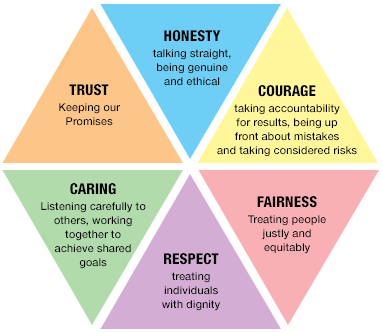HUMAN VALUES



In 1994, most people had to call the bank to check their balances. Or inquire in person, or wait for a paper statement to arrive in the mail. Baseball box scores were found in the newspaper. Weather forecasts came over the phone from the weather bureau, or on TV.
Back then, most Americans still had to lick a stamp to send mail.
Then along came an experimental browser called Mosaic, followed by an improved browser from Netscape. And if you had a computer, you discovered a new way to this cool, new thing called the World Wide Web.
Mosaic and Netscape were the first popular connection to what came to be called the information superhighway and followed the first browser by Tim Berners-Lee called WorldWideWeb.
According to the Pew Internet & American Life Project, fewer than one in seven Americans were online in 1995. Today, the majority of Americans are surfing the Web, exchanging e-mail, reading bank statements and ball scores, checking the weather. Today, Pew says, two out of every three Americans spend time online.
The World Wide Web has transformed the way people live, work and play. People can play travel agent and book all the elements of a vacation online. They can arrange for their bills to be paid automatically while they are gone. They can put a hold on mail delivery, find directions to tourist attractions and get a long-term weather forecast before they pack.
Even on vacation, they can log onto the Web to keep up with news from their hometown paper or TV station, and stay connected with friends and family. In its first decade, the Web altered the pace of popular culture. It made distance less daunting, rendered information instantly accessible and revolutionized communication.
In the mid-1990s, the top three Web sites were AOL, Netscape and WebCrawler (which was a search engine owned by AOL), according to Internet research measurement company comScore Media Metrix. Each had an audience of 4 million to 6 million people per month.
Today, the audience for the Web numbers more than one billion and is growing.
"People are being much more customized in the type of content that they want to see and consume [online]," said Peter Daboll, president of comScore Media Metrix. "Also, there are the communication advances where it is easier to communicate and stay online. And they are just having more of their needs filled, whether it’s travel, shopping and all these other activities that didn’t exist to the same degree in the early days of the Web."
Latter of application
28th. April, 2010 San Antonio 522
Av. Artigas 741
Hotel Midas
Dear Sir,
I am writing in response to your advertisment for restaurant manager job in the New York Times on 25th of April.
Although I am happy in my current position, I would like a post with more responsability.
I am experienced in this kind of job because I worked in a hotel when I was living in Punta del Este. This work involved a variety of duties like making reservationes by telephone, fax, e-mail and in person with the hotel guests. I think that I am a good person for this job because I am a responsible, pacient, frendly person and I like meeting different people.
I have good standards of English and Portuguese. I am attending a course in Japanese.
I look forward to hearing from you. I can came and see you when you like. Thank you for considering my application.
Yours faithfully,
Ana Ortiz